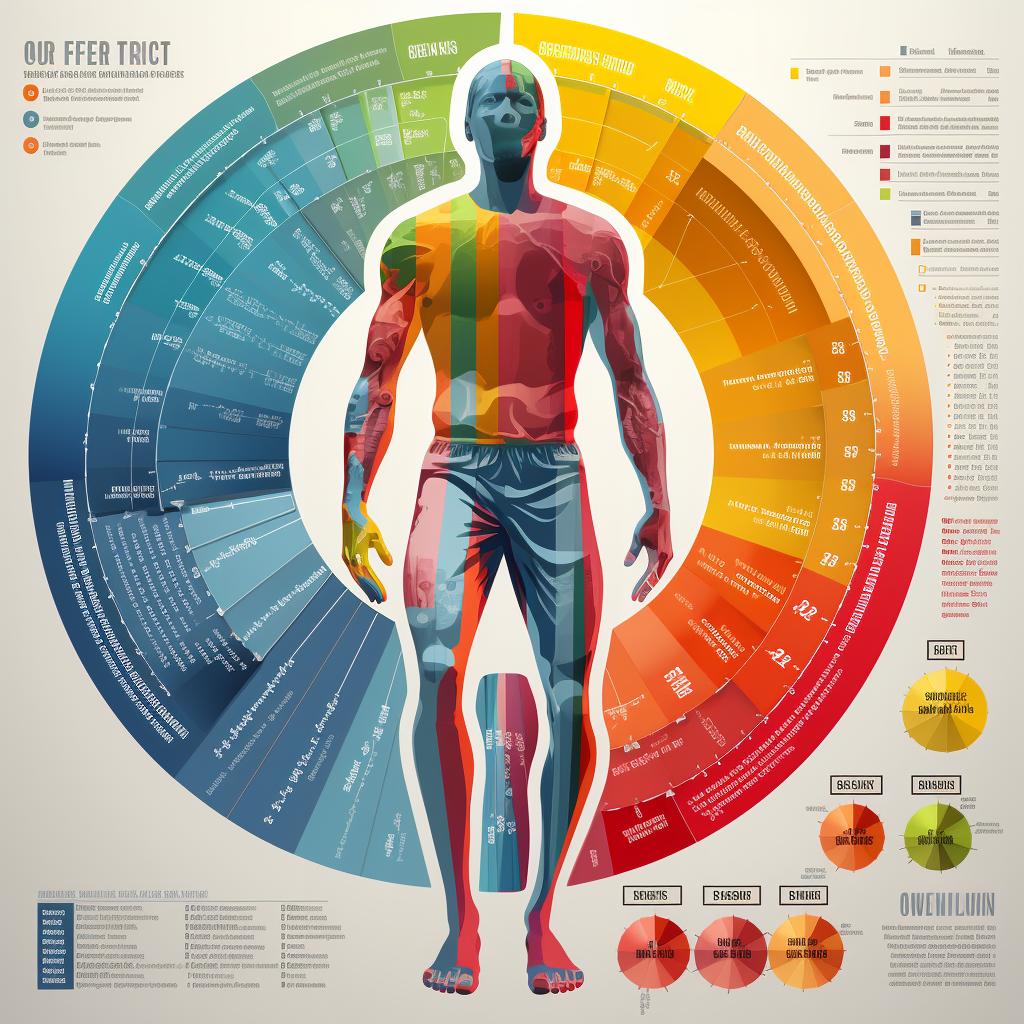What is Basal Metabolic Rate (BMR)
Its the amount of energy or calories that your body requires to maintain basic functions while at rest. These functions include essential processes like breathing, circulating blood, regulating body temperature, and supporting organ function.
In simpler terms, BMR represents the minimum number of calories your body needs to keep you alive and functioning, regardless of whether you're at rest or engaged in any physical activity.
BMR is typically measured in calories per day and serves as a baseline for estimating your daily calorie needs. It can vary from person to person based on factors such as age, gender, body composition, and genetics. Understanding your BMR is crucial for developing a personalized diet and exercise plan.
Calculate your Basal Metabolic Rate
To understand your BMR, you can use various formulas, each with its own level of accuracy and complexity. The most popular formula is the Harris-Benedict equation, which offers separate calculations for men and women.
The Harris-Benedict Formula for BMR
men: BMR = 88.362 + (13.397 * weight(kg)) + (4.799 * height(cm)) - (5.677 * age) women: BMR = 447.593 + (9.247 * weight(kg)) + (3.098 * height(cm)) - (4.330 * age)
How can you use your BMR for Weight Goals
Once you've calculated your BMR, you can utilize this information as a guide for achieving your weight-related goals. Your BMR serves as a starting point for tailoring your calorie intake and exercise plans to either lose, maintain, or gain weight, depending on your objectives.
Weight Loss
To shed unwanted fat, consume fewer calories than your BMR. A moderate calorie deficit is generally recommended to ensure you lose weight at a healthy and sustainable pace. It's crucial to prioritize nutrient-dense foods to meet your body's nutritional needs.
A common guideline for achieving safe and sustainable weight loss, typically resulting in about 1 to 2 pounds (approximately 1 kilogram) per week, involves aiming for a daily calorie deficit of 500 to 1,000 calories.
However, it's essential to recognize that individual activity levels are a crucial factor in determining the appropriate calorie deficit. Since BMR doesn't account for your physical activity level, it's prudent to factor it in separately – a feature we've incorporated in our calculator.
For example, if your estimated daily energy expenditure, taking into account your level of physical activity, is around 2,500 calories, a daily calorie intake of 1,500 to 2,000 calories may constitute an appropriate range for weight loss.
It's important to make necessary adjustments based on your specific circumstances, and consulting with a healthcare professional or registered dietitian can provide tailored guidance to ensure a safe and effective weight loss journey.
print from our @https://www.velfit.com/tools/bmr
Maintain weight
That's precisely what BMR represents. It's the foundational indicator that tells you: eat less, and you lose weight; eat more, and you gain weight. The numerical value it provides aligns with the calories you should aim for to maintain your current weight, ensuring that your nutritional choices keep you on track with your weight management goals. It's a fundamental tool for those seeking both short-term and long-lasting success in their fitness and health endeavors.
It's crucial to align your calorie intake with your BMR, considering your level of activity. This balance ensures that the calories you consume are in harmony with the calories you burn through daily activities and exercise.
Muscle Gain
When it comes to gaining muscle, understanding your Basal Metabolic Rate (BMR) remains a valuable starting point, with the focus shifting to increasing your calorie intake to support muscle growth.
To promote muscle growth, you generally need to consume more calories than your body burns, creating a calorie surplus. This surplus provides your body with the extra energy needed for muscle repair and growth. However, it's important to avoid excessive caloric surplus to minimize fat gain while maximizing muscle gain.
It's essential to emphasize the importance of a well-rounded diet that includes sufficient protein for muscle development while being mindful of your fat intake. Prioritizing protein-rich foods and managing your fat intake can play a key role in supporting effective muscle growth. A diet rich in lean proteins, complex carbohydrates, and healthy fats is often recommended for those aiming to build muscle while minimizing excess body fat.
Combine your increased calorie intake with a structured strength training program to provide the stimulus for muscle growth.
How to Increase or Decrease my Basal Metabolic Rate
Your Basal Metabolic Rate (BMR) is primarily determined by factors such as age, gender, genetics, and body composition, which you can't change.
It's essential to remember that an extremely high or low BMR can signal underlying health issues and should be discussed with a healthcare professional. Our BMI calculator is a valuable tool that can help you assess if your BMR falls within a healthy range.
Remember, it's generally better to focus on improving overall health, fitness, and maintaining a balanced diet and lifestyle rather than trying to directly manipulate your BMR, as it is largely determined by factors beyond your immediate control.
Conclusion
In summary, Basal Metabolic Rate (BMR) is the baseline measure of the calories your body needs to sustain essential functions at rest. It plays a vital role in tailoring your diet and exercise plans for various weight-related goals. Our Velfit calculator simplifies the process by using the Harris-Benedict formula, factoring in activity levels. Whether you aim to lose weight, maintain, or gain muscle, understanding and using your BMR as a guide can help you make informed choices. Lastly, while you can't significantly change your BMR, you can influence it indirectly through factors like muscle gain, exercise, and a balanced diet, all of which contribute to your overall health and fitness.



